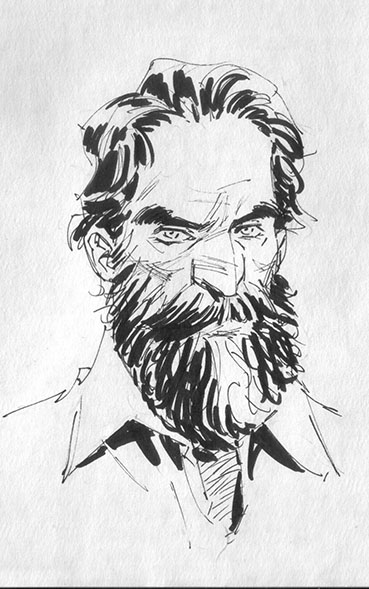It seems we can’t find what you’re looking for. Perhaps searching can help.
Nothing Found
 Somebody should paint reality into bright colors. Thus in the early morning you can always find Temur Schelm in one of the Amsterdam cafes pounding the keyboard and creating his stories over a cup of the strongest and the blackest espresso.
Somebody should paint reality into bright colors. Thus in the early morning you can always find Temur Schelm in one of the Amsterdam cafes pounding the keyboard and creating his stories over a cup of the strongest and the blackest espresso.
Temur has always been obsessed with mythology...
That's why after receiving a graduate degree in screenwriting from one of the oldest film schools (the Russian State University of Cinematography) he enthusiastically started to weave old myths into his stories.
However, things turned out to be not so simple. He spent years searching for a format that would embody his ideas in all their entirety. The inspiration came when Temur came across the Sandman by Neil Gaiman which predetermined his literary destiny.
Since then, Temur has already written five graphic novels, where ancient gods in steampunk entourage penetrate the revolutionary Paris of 1968 ("Oekumene" series), Reynard the Fox scampers around the great wide open of the space opera ("R means Regress"), friendship breaks down genetic barriers in the biopunk universe ("Dredcore Reloaded") and the magic of modern gypsies is something that goes without saying ("Red Horse"). Through these works the author talks to his readers about things that really matter to him: free will and predestination, talent and routine, non-conformism and opportunism.
 Кто-то ведь должен раскрашивать эту реальность в яркие цвета. Поэтому вы всегда можете найти Темура Шельма ранним утром в одном из Амстердамских кафе, стучащим по клавишам, слагая истории за чашкой крепчайшего, чернейшего эспрессо.
Кто-то ведь должен раскрашивать эту реальность в яркие цвета. Поэтому вы всегда можете найти Темура Шельма ранним утром в одном из Амстердамских кафе, стучащим по клавишам, слагая истории за чашкой крепчайшего, чернейшего эспрессо.
Темур всегда был одержим мифологией...
Поэтому, получив образование сценариста в одной из старейших киношкол мира (Всероссийском Институте Кинематографии), он с воодушевлением бросился вплетать старые мифы в свои истории.
Но все оказалось не так просто. Годы ушли на поиски формы, которая бы позволила воплотить идеи во всей полноте.
Озарение пришло, когда в руки Темура попал Sandman Нила Геймана, предопределивший его дальнейшую писательскую судьбу.
С тех пор Темур Шельм написал уже пять графических романов. В них античные боги в стимпанк антураже прокрадываются в современный мегаполис (Искры Хаоса, Мельницы Богов), Рейнеке-лис из средневековых легенд резвится на просторах космической оперы («R» значит Регресс), дружба сметает генетические барьеры в мире биопанка (Дредкор Перезагрузка), а магия у современных цыган - вещь, сама собой разумеющаяся (Красный конь). Так автор разговаривает с читателями о том, что его действительно волнует: свободе воли и предопределении, таланте и рутине, дружбе и нонконформизме.
